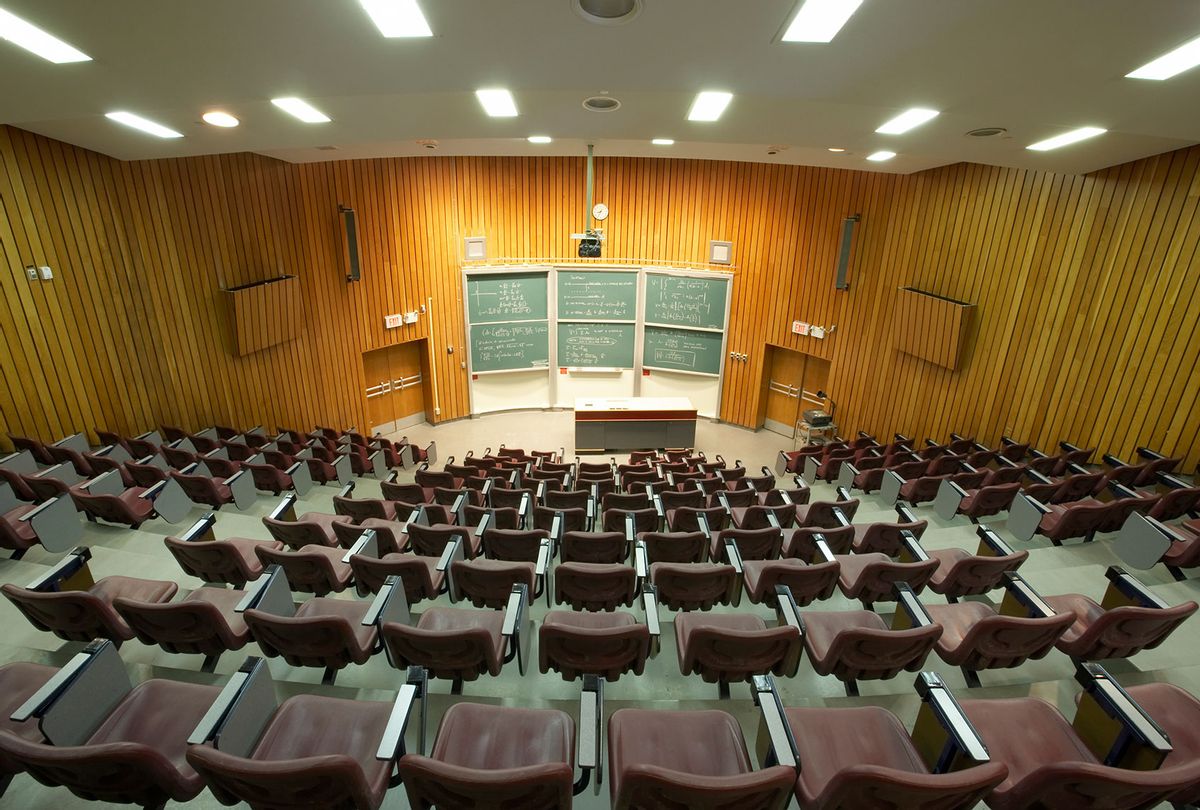More than a decade ago Clayton Christiansen, a Harvard business professor who coined the idea of disruptive innovation, predicted that technology would revolutionize higher education. Many believe this time has come, with the tipping point being the pandemic — which resulted in widespread adoption of remote, technology-assisted teaching. The normalization of remote learning does seem to make sense, culturally; after all, isn't this technology-based approach to education more consistent with how young people live and work already? And if students want it, perhaps higher education will finally replace face-to-face teaching with technology-based approaches to learning.
Yet nearly all colleges have re-adopted in-person education this fall, in spite of delta variant risks. Why is this? As it turns out, student enthusiasm for remote learning is mixed at best, and in some cases students have sued their colleges for refunds. But it is not simply student opinion that has driven this reversion to face-to-face education.
Indeed, students are far better off with in-person learning than with online approaches. Recent research indicates that the effects of remote learning have been negative. As the Brookings Institution Stephanie Riegg reports, "bachelor's degree students in online programs perform worse on nearly all test score measures—including math, reading, writing, and English—relative to their counterparts in similar on-campus programs."
In the 1980s, Harvard psychologist Howard Gardner expressed concern about technology-based education, asserting that higher learning requires much more than the delivery of facts. He asserts it requires the development of thinking and learning competencies that can only occur when there is an educational community surrounding a student. Indeed, in the decades since we have amassed a remarkable volume of research documenting how the ability to understand concepts fully, to critically analyze, and to seek new information effectively occurs when college experiences involve close relationships between students and faculty and where faculty care about the development of their students.
Indeed, research on human learning consistently finds that the social context of learning is critical, and the emotions involved in effective human relations play an essential role in learning. Think of a teacher who had a great impact on you – the one who made you excited, interested, intrigued, and motivated to learn. Was this teacher a calm and cool transmitter of facts, or a person who was passionate about the subject and excited to talk about it? And how did this teacher relate to you? Were you an empty container into which information was poured, or a person whose thinking and enthusiastic responses were valued and important?
Want more education and psychology stories in your inbox? Subscribe to Salon's weekly newsletter The Vulgar Scientist.
Research tells us the most effective teachers – those who are most successful in having their students learn – are those who establish an emotional relationship with their students in an environment of care and trust. As former teacher and now neuroscientist Mary Helen Immordino-Yang tells us, emotion is necessary for learning to occur: "Emotion is where learning begins, or, as is often the case, where it ends. Put simply, it is literally neurobiologically impossible to think deeply about things that you don't care about…. Even in academic subjects that are traditionally considered unemotional, such as physics, engineering or math, deep understanding depends on making emotional connections between concepts."
Learning does not happen in a mechanistic way. We know that higher learning – the kind that contributes to a good, fulfilling, and successful life – happens most effectively when social and affective dynamics are harnessed. Today we have the benefit of extensive research documenting the short-term and long-term importance of these social-educational practices. Research based on the widely used National Survey of Student Engagement (NSSE) consistently finds that having meaningful outside-of-class relationships with faculty and advisors increases not only learning but graduation from college and employment after graduation.
It is also worth noting that Gallup-Purdue University public opinion research affirms the idea that people believe these personal relationships in college matter. A study of 30,000 graduates reports that they believe "what students are doing in college and how they are experiencing it… has a profound relationship to life and career." Specifically, "if graduates had a professor who cared about them as a person, made them excited about learning, and encouraged them to pursue their dreams, their odds of being engaged at work more than doubled, as did their odds of thriving in their well-being."
Since empirical research documents the powerful impact of meaningful human relationships on learning while in college as well as on graduate's adult lives, and people believe it matters, do we dare replace it with technology? There are certainly numerous ways technology can be used as an effective tool to facilitate learning, and many faculty have learned new ways to make it useful. Yet when we ultimately fully enter a post-pandemic world, educators must renew the emphasis on pedagogies based on in-person, face-to-face learning. We must bring the truly transformative power of social-affective learning even more clearly into the center of our educational enterprise.



Shares